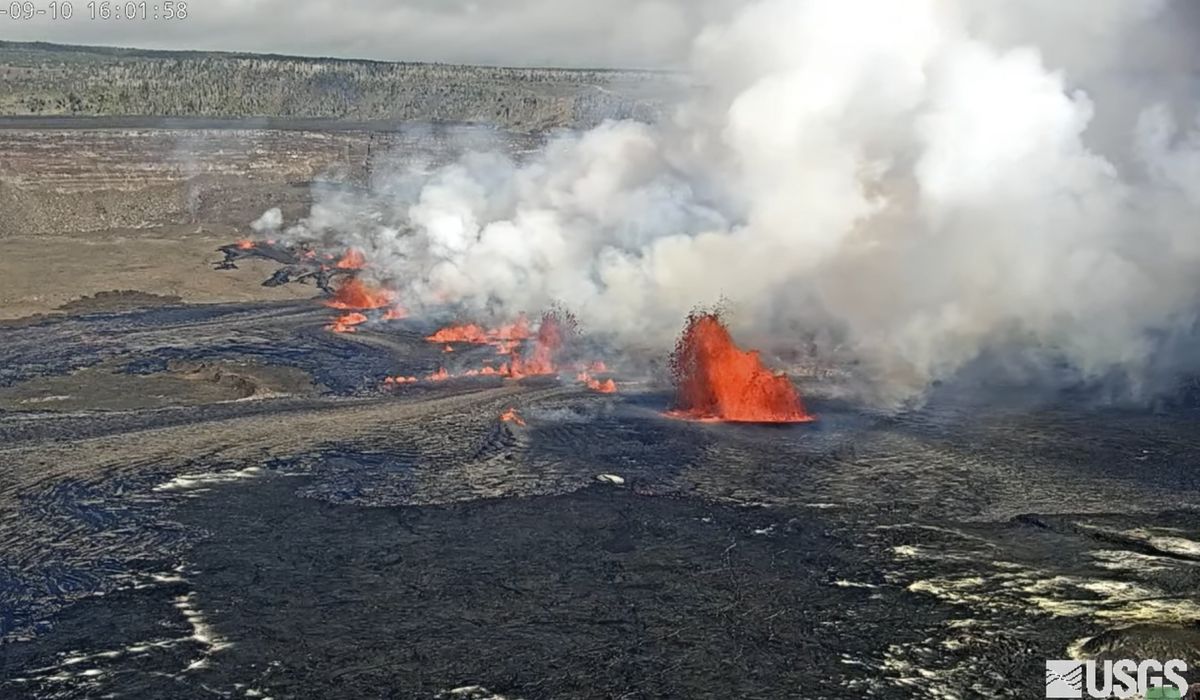


Part of a parking lot and a stretch of trail near the crater of Kilauea in Hawai‘i Volcanoes National Park were closed starting Wednesday to protect a mating pair of Hawaiian geese.
The birds, known as nēnē, are native to the Hawaiian Islands and are found nowhere else. The temporary closure is meant to ensure that people do not disrupt the birds during the time they rear their eggs.
“The temporary closure prevents human activity from disrupting the nēnē family and is an important action we take to help them survive and raise their young. Nēnē face many challenges, including predation by feral cats and mongoose and deadly contact with vehicles,” HVNP Wildlife Biologist Kristina Paxton said in a National Park Service news release.
The geese typically mate for life, with nesting season taking place each year from October through May. Each clutch contains anywhere from two to five eggs, which are then incubated for about 30 days, NPS explained.
The number of eggs inside the nest in question is unknown.
“We don’t actually know how many eggs she has, because she’s been sitting on them every time we’ve been up there,” Ms. Paxton told the Hawaii Tribune-Herald.
Park officials added that this year’s pair of geese, observed together since 2016, are different from a pair observed in the same area in 2022. Their nesting led officials to shut down the entire Uēkahuna parking lot, overlook and restrooms for five weeks.
While the overlook, restrooms and most of the Uēkahuna parking lot remain open so far, they could also be closed off if park biologists deem it necessary to protect the geese.
This year’s geese pair have been together since 2016. There are roughly 80 to 100 of the birds inside the park in around five to 20 breeding pairs, Ms. Paxton told the Tribune-Herald, though numbers have decreased in recent years due to a drop in the amount of new nēnē being born inside the park.
Ms. Paxton qualified, however, that while local conditions may have led to a drop of geese inside the park, the number of the birds statewide has increased over the years.
• Brad Matthews can be reached at bmatthews@washingtontimes.com.
